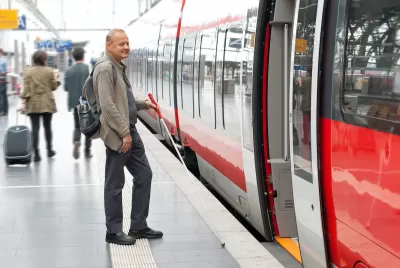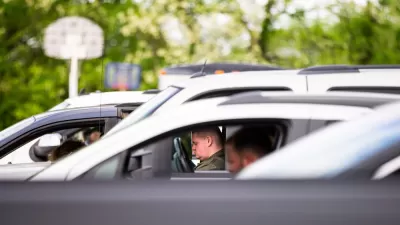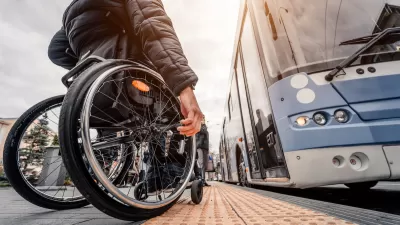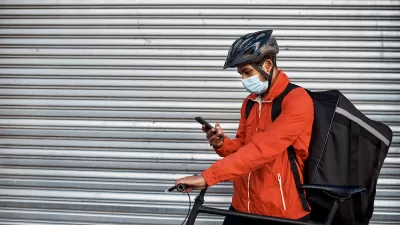People who are physically unable to drive can benefit from effective public transit systems and accessible, mixed-use neighborhoods.

The car-centric infrastructure that dominates most U.S. cities makes navigating the public realm more difficult for many groups, including people with disabilities.
As Matthew Rozsa explains in a piece on Salon, “there is a crucial difference between not driving for economic or ecological reasons — or, in extreme cases, due to legal consequences for crimes like driving while intoxicated — and not driving because your body makes the task physically impossible. In the latter scenario, being unable to drive isn't merely an inconvenience. It becomes another manifestation of a person's disability, and a particularly debilitating one at that.”
Zoe Gross, director of advocacy at the nonprofit Autistic Self Advocacy Network, told Salon in an email that “not being able to drive can significantly worsen a person's life, especially if they live in an area of the country with little or no public transportation.”
People who are unable to drive, regardless of their ability, can face discrimination in employment, education, healthcare, and other important areas. Advocates say supporting people with disabilities involves building robust public transportation systems and putting a stronger focus on accessibility in infrastructure and mobility projects.
FULL STORY: The hidden ways our car-obsessed culture is especially hard on disabled people

Alabama: Trump Terminates Settlements for Black Communities Harmed By Raw Sewage
Trump deemed the landmark civil rights agreement “illegal DEI and environmental justice policy.”

Study: Maui’s Plan to Convert Vacation Rentals to Long-Term Housing Could Cause Nearly $1 Billion Economic Loss
The plan would reduce visitor accommodation by 25% resulting in 1,900 jobs lost.

Why Should We Subsidize Public Transportation?
Many public transit agencies face financial stress due to rising costs, declining fare revenue, and declining subsidies. Transit advocates must provide a strong business case for increasing public transit funding.

Wind Energy on the Rise Despite Federal Policy Reversal
The Trump administration is revoking federal support for renewable energy, but demand for new projects continues unabated.

Passengers Flock to Caltrain After Electrification
The new electric trains are running faster and more reliably, leading to strong ridership growth on the Bay Area rail system.

Texas Churches Rally Behind ‘Yes in God’s Back Yard’ Legislation
Religious leaders want the state to reduce zoning regulations to streamline leasing church-owned land to housing developers.
Urban Design for Planners 1: Software Tools
This six-course series explores essential urban design concepts using open source software and equips planners with the tools they need to participate fully in the urban design process.
Planning for Universal Design
Learn the tools for implementing Universal Design in planning regulations.
Caltrans
Smith Gee Studio
Institute for Housing and Urban Development Studies (IHS)
City of Grandview
Harvard GSD Executive Education
Toledo-Lucas County Plan Commissions
Salt Lake City
NYU Wagner Graduate School of Public Service





























